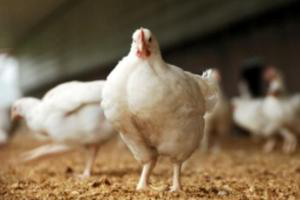Broilers on barley can do briefly without ß-glucanases

It is well known that exogenous microbial ß-glucanases effectively contribute to improve the nutritive value of barley based diets for broilers while they are predominantly effective in the first stages of the production cycle.
The Portuguese research focused on the performance of broilers fed on barley-based diets supplemented with a β-glucanase enzyme mixture, in part or during the entire length of the production cycle. In total, 600 one-day-old Ross 308 chicks were randomly divided into four groups.
Animals were fed on a barley-based diet supplemented with a commercial enzyme cocktail for the entire duration of the trial (35 days) or exclusively during the first 11 or 23 days of the experiment. Animals of the control group were fed on the basal diet not containing the microbial biocatalyst mixture.
Body weight and feed intake were recorded weekly and weight gain and feed conversion ratios were determined. At the end of the trial, two animals were slaughtered to collect gastrointestinal (GI) contents to evaluate viscosity and enzymatic activity. Weight/length of GI compartments were also recorded. Data revealed that all β-glucanase supplemented groups outperformed non-supplemented birds at day 35. Significant differences in body weight were detected at day 11, suggesting that response to enzyme supplementation occurs, primarily, during the initial stages of broiler growth.
In addition, final body weight of animals fed on diets supplemented during the first 11 or 23 days of the experiment was identical to animals supplemented during the entire trial (P>0.05). Together the data suggests that in barley-based diets exogenous enzymes act primarily in the earliest periods of broilers growing period and that enzyme supplementation may be restricted to the first 11 days of the production cycle without negatively affecting animal performance.
Zymogram analysis allowed detecting β-glucanase activity in the crop of non-supplemented birds at day 35. This activity does not arise from endogenous enzymes present in the feed suggesting colonisation of the crop with a β-glucanase secreting microbial population.
Although this activity was not sufficient to reduce digesta viscosity in the upper portions of the GI tract when compared with birds exposed during the entire period of the experiment to the exogenous enzymes, it might have contributed to attenuate the antinutritive effects of β-glucans at later stages of animal growth.
The researchers were attached to the Pólo Universitário do Alto da Ajuda in Lisbon, Portugal and the Instituto Superior de Agronomia in Lisbon, Portugal.
The article is about to be published in Animal Feed Science & Technology.
Join 31,000+ subscribers
Subscribe to our newsletter to stay updated about all the need-to-know content in the poultry sector, three times a week. Beheer
Beheer











 WP Admin
WP Admin  Bewerk bericht
Bewerk bericht